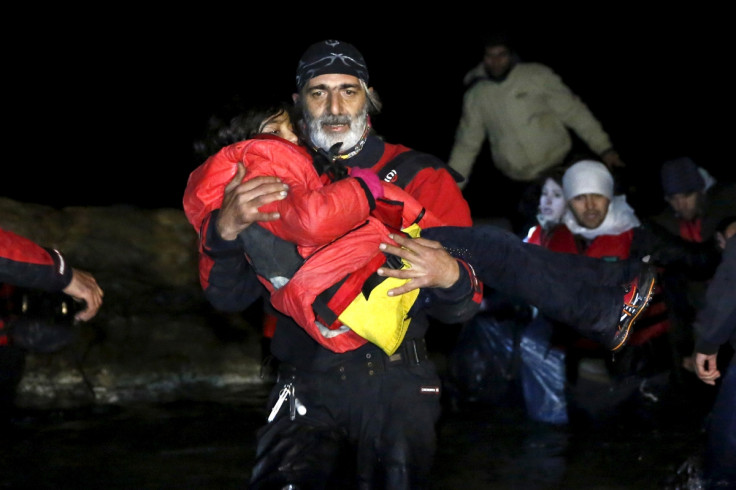Migrant crisis: More children drown off Greece in record winter arrivals

A migrant boat has sank off an eastern Greek island killing at least 12 people, mostly children, as the influx of asylum-seekers to Europe continues at record rates despite unforgiving winter weather conditions. The Greek coastguard said they rescued ten people north of the island of Samos but the number of those missing at sea is unclear.
Survivors arrived in a state of shock unable to provide rescuers with a clear account of how many people were on the boat that sank. Five of those rescued were found clinging to a piece of wood.
The coastguard said it had retrieved 12 bodies, including eight boys and girls. Search and rescue operations were continuing in the area. It was the second deadly incident in as many days, as authorities found the bodies of seven more drowned migrants, including two children, on 27 January near Kos.
It came as Greece faces pressure from its European partners to tighten border controls and speed up the construction of five reception centres amid a growing number of arrivals. More than 45,000 migrants and refugees crossed to Greece on boats this year, more than 30 times the number of arrivals recorded in the whole of January 2015, according to the International Organisation for Migration (IOM).
About 90% of the newcomers were from Syria, Iraq and Afghanistan, the NGO said. It added that the number of crossings on the central Mediterranean route, from northern Africa to southern Italy, was also on the rise. The Italian coastguard said it rescued 1,271 in nine separate operations off Libya on 27 January only.
On the same day, a European Commission report claimed Athens was not doing enough to protect its borders, fuelling calls by some member states to push Greece out of the EU's passport-free Schengen zone.
"The report shows that there are serious deficiencies in the management of the external border in Greece," said EU Migration and Home Affairs Commissioner Dimitris Avramopoulos. "Substantial improvements are needed to ensure the proper reception, registration, relocation or return of migrants in order to bring functioning back to normal."
The Greek government was given three months to fix the problems. Earlier, however, Greece's public order minister Nikos Toskas warned it was almost impossible to prevent all crossings. "It is very difficult to stop small boats coming... except sinking or shooting them, which is against our European values and Greek values and we will not do that," he told Reuters.
© Copyright IBTimes 2025. All rights reserved.






















